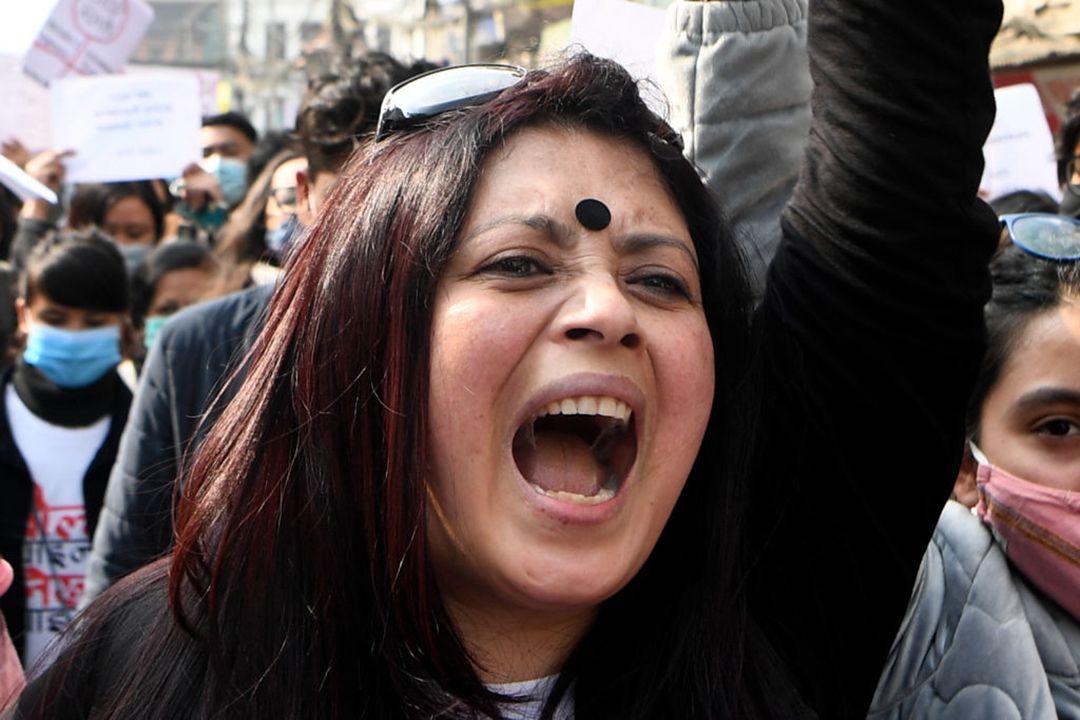Calls for change in Kathmandu: Women make peaceful statement

Hundreds of Nepalese women are joining online communities and taking to the streets to peacefully demand an end to unpunished sexual violence and to protest a political system they say limits their freedoms.
A women’s march in Kathmandu in mid-February 2021 amplified growing demands for justice for a 17-year-old girl whose body was found just days before in the forests of the Baitadi district in western Nepal, The Kathmandu Postnewspaper reported. Police said an autopsy revealed the teen was raped and killed.
The case, which is drawing protests from students and activists, evoked memories of the 2018 rape and slaying of a 13-year-old girl in the Kanchanpur district. Police had not made an arrest in either case as of mid-March 2021.
Demonstrators demanding justice for the victims are also speaking out about a patriarchal system they say unfairly restricts women’s rights. Nepal’s Department of Immigration in February 2021 introduced a proposal that would require women under 40 to seek permission from their families and government officials before visiting Africa or the Middle East for the first time, The Guardian newspaper reported.
Although the department said the proposal was designed to prevent human trafficking, demonstrators argued that it reveals a worrisome mindset. “What is extremely dangerous is the thought process behind it,” Hima Bista, executive director of Women Lead Nepal, told The Guardian. “The very fact that a policymaker is thinking about drafting this law restricting the movement of adult girls and women tells us how deep-rooted the patriarchal mindset is.”
Ila Sharma, a former election commissioner of Nepal, called the proposal “regressive, unconstitutional, not to say ridiculous,” The Guardian reported. (Pictured: Demonstrators march to protest violence against women in Kathmandu, Nepal, on February 12, 2021.)
While hundreds of women marched peacefully in Kathmandu, they also began joining a budding family of online communities that give them safe spaces to discuss transformative change. “How do we make sure that there is no gap between laws and social progress? The policy angle needs to run parallel to the social one to ensure that boys and girls at a young age are part of the discussion to end the toxic cycle of gender discrimination,” Jesselina Rana, a 25-year-old activist based in Kathmandu, told the online news magazine The Diplomat.
Rana founded the digital platform Nepali Feminist, which was created in 2017 in response to “a lack of safe spaces for young feminists in Nepal to talk about the issues affecting them.”
“The digital space has really given people the ability to be part of the conversation,” Rana said.
A lack of internet access has hampered the growth of these platforms, however.
“Digital activism in Nepal is still ‘niche’ for the most part as a result of lack of connectivity and access to the internet in most areas,” Rana said. “Most digital activism still happens in English and a lot of people are now trying to get out information in Nepali and many of our country’s indigenous languages.”
IMAGE CREDIT: AFP/GETTY IMAGES




